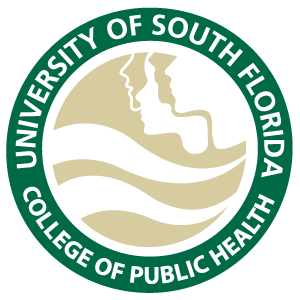An ecological approach to understanding obesity risk among children with autism spectrum disorder
May 24, 2022

|
Led by Dr. Russell S. Kirby, investigators at the University of South Florida College of Public Health conducted a secondary analysis to better understand the social-ecological context for autism spectrum disorder (ASD) and obesity to address disparities in adolescents with ASD as they transition to adult health care. The study was funded by the Health Resources and Services Administration of the U.S. Department of Health and Human Services under grant number R41MC39340 and R40 Maternal and Child Health Field-initiated Innovative Research Studies Program.
The prevalence of autism spectrum disorder (ASD) and childhood obesity are increasing, and youth with ASD are at an increased risk of obesity compared to typically developing youth. Specific obesity risk factors in adolescents with ASD remain poorly understood. Using extant 2017-2018 National Survey of Children’s Health data, the USF team (1) examined correlates of obesity among adolescents with and without ASD; (2) examined the prevalence and association of obesity and neurodevelopmental and mental health co-occurring conditions among adolescents with ASD; and (3) explored whether there are mediated effects of child and family risk in the association between community and organizational risk and obesity among children and adolescents, focusing on ASD and co-occurring conditions.
Crude odds of obesity were higher in adolescents with ASD compared to adolescents without ASD, but the adjusted odds of obesity were not significantly higher in those with mild or moderate/severe ASD compared to those without ASD. Odds of obesity were higher for all adolescents who were Hispanic or Black, as well as those with lower household income or with one or more co-occurring conditions. Odds of obesity were greater among adolescents with ASD who also had depression and anxiety. Community risk was found to be a strong predictor of obesity, mediated by family risk. Additional research on social-ecological risk factors for obesity is needed to identify leverage points to improve obesity risk in children and adolescents with and without ASD.
Findings were presented at the 2021 American Public Health Association annual meeting and published in Childhood Obesity, Research and Autism Spectrum Disorders, and Disability and Health Journal.
- Buro, A. W., Salinas-Miranda, A., Marshall, J., Gray, H. L., & Kirby, R. S. (2022). Autism spectrum disorder diagnosis and other child, family, and community risk factors for obesity among children and adolescents aged ten to seventeen years in the United States: A mediation analysis. Childhood Obesity. Online ahead of print. https://doi.org/10.1089/chi.2021.0260
- Buro, A. W., Salinas-Miranda, A., Marshall, J., Gray, H. L., Kirby, R. S. (2022). Obesity and co-occurring conditions among adolescents with autism spectrum disorder: The 2017-2018 National Survey of Children’s Health. Research in Autism Spectrum Disorders, 92, https://doi.org/10.1016/j.rasd.2022.101927
- Buro, A. W., Salinas-Miranda, A., Marshall, J., Gray, H. L., Kirby, R. S. (2021). Correlates of obesity in adolescents with and without autism spectrum disorder: The 2017-2018 National Survey of Children’s Health. Disability and Health Journal, 15(2). https://doi.org/10.1016/j.dhjo.2021.101221
For more information, contact:
Email: [email protected]
Phone: 727-453-9951







